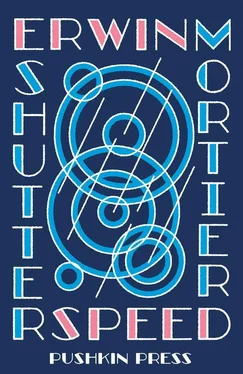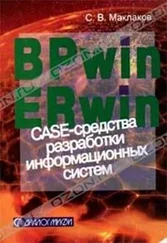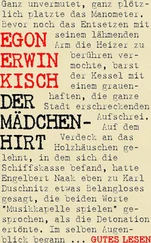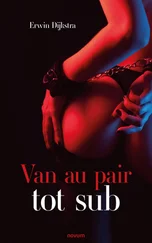‘No, really, I mean it. How long has it been since we had a little dance, you and me?’
She hesitated.
‘It’s all right, I can get myself home,’ I said. ‘Got to be up early tomorrow anyhow.’
Several days ago Miss van Vooren had sent the canopy bearers a note, in the flowing but somewhat sterile hand so familiar to me from her shopping lists, telling everyone, in particular the new member, to be sure to present themselves at the sacristy at least half an hour ahead of time.
‘Come on, Laura, be a sport,’ Uncle Werner pleaded.
Finally she shrugged her shoulders and said: ‘Oh all right then, why not.’
They gave me the key to the front door.
The graves in the churchyard were still giving off heat. The hot air remained trapped between the headstones, and in the deep shadows beneath the linden trees I thought I heard a noise. It sounded like leaves rustling in the wind, which was odd as there had not been a breath of wind for days.
I did not dare look sideways. I heard a match being struck.
‘Hey mate,’ a man’s voice spoke behind me. ‘Still up at this hour? You’d better get yourself to bed pronto.’ Someone tittered.
I quickened my step until I reached the road on the other side. I had heard Aunt complaining to Miss van Vooren about un-Catholic shenanigans in the churchyard.
‘You know what I mean …’ she had added with a nod in my direction, which I took to signify she was speaking of things for which my ears were yet too tender.
I slipped the key into the lock and let myself in. In the kitchen I filled a glass of water and drank it down. Outside, an electric guitar twanged ‘Roses for Sandra’ over the rooftops.
My bedroom was as hot as an oven. I got undressed and lay down on top of the bedclothes.
I heard footsteps out in the road, followed by the crunch of gravel. I heard someone moan ‘Ronnie, ooh Ronnie.’ I stood up and crossed to the window. Under one of the lindens I glimpsed something moving, hands fumbling under a checked skirt, a flash of bare thigh.
I brought my face up close to the window screen to get a better view, and immediately heard a gruff voice, the same one as before, calling out: ‘Back to bed with you, I said. Sleep tight, mind the bugs …’
I jumped into bed and switched off the bedside lamp. After a while I heard footsteps again, dying away over the cobbles, and around two in the morning I woke with a start to hear Uncle blundering up the stairs.
‘Seven carnations, seven roses, for you my sweet these posies …’ he slurred.
‘Shush, Werner,’ hissed Aunt.
‘… Roses and posies … for you.’
He bumped into something. Aunt gave a shriek. I wanted to leap out of bed to help, but then I heard her giggle, no doubt because he had seized her by the hips again.
The door of their room clicked shut behind them.
For as long as it took me to fall asleep I heard her intermittent squeals bouncing off the churchyard wall.
I HAVE ONLY ONE PHOTO OF THAT SUNDAY. UNCLE MAY WELL have taken several, since he was hardly likely to have fetched out his camera from the cabinet purely because I had turned up for breakfast in the dazzling white shirt that Aunt had ironed so carefully. He must have had it all planned, and Aunt Laura was probably in on it too. He seldom took photographs, and never on a whim. Perhaps the rest of the pictures were distributed among other albums, gone to family relations, forgotten over time.
I remember Aunt making me wear knee socks, too, although you can’t see them here. I am way down in the bottom right-hand corner, you can see one of my arms resting on the table, and although Uncle photographed me from behind you can tell I am looking at Aunt. She is putting a blouse on over her bodice. It floats ethereally over her shoulders; a second or two later it will be buttoned up.
Behind her the window is a bleak rectangle of whiteness, a white that seems to leach into my shirtsleeves. It casts a wintry pall over the objects in the room, making them appear both paler and darker than they presumably were. Aunt’s frame seems to be dissolving at the edges, suggesting auras hovering about her limbs.
I love that photo. For the newspaper on the table, which I am touching with my fingertips, for the disarray of cups and coffeepots and spoons, the unprepossessing luxury of breadcrumbs and used plates, but also for being the last one of its kind.
The light in the room is so bright that the reflection in Aunt’s eyes makes her pupils look like minute white saucers. In my memory that morning had a very different texture: warmer and more coppery toned. A feverish Sunday at the end of June, with a breeze fluttering the linden leaves like handkerchiefs.
I was only a few paces short of the sacristy facing on to the churchyard, where the others were already waiting. There were three of them, teenage boys slouching against the wall of the church and of an age to wear what they liked, how they liked, such as caps and long hair and trendy collarless shirts. The collar of my own shirt was worthy of a sailing ship. I looked like the kind of boy I’d want to avoid if I chanced upon him on a deserted street corner.
I tried to move close enough to the youths to make it look as if I sort of belonged, and yet not so close as to draw attention to myself. The tallest of the trio was telling jokes, at which I heard myself laugh too heartily.
When they started about girls, in particular one called Claudia and what they called her milk-wagons, I sensed in their sniggers an urgency that was not yet mine. It gave me a feeling of superiority, which I thought best to dissemble.
The tallest one said he had done it three times already, but the others shook their heads disparagingly. Gusta Coremans did not count, not really. She went off with anyone who gave her stickers of pop stars.
I saw her in the shop sometimes. She was an only child. She and her mother, who was quite old, lived in an estate cottage sagging on the verge of collapse under the weight of its own roof tiles. She had frizzy hair which defied every hairbrush, and a slight squint.
Miss van Vooren said you could hardly blame the poor lamb for not knowing who her father was, but there was something decidedly odd about the Coremans twosome. When it was busy in the shop someone would always find a cause to mention that Gusta’s mother had been in service at the big house once upon a time. This was common knowledge, as was the fact that Gusta was illegitimate.
‘Gusta, Gusta,’ the other two boys chanted, to wind up the tallest. ‘Gusta Coremans!’ They held out their arms and staggered about as if they were about to fall.
‘That’s got nothing to do with it,’ growled the tall boy, and I didn’t understand what he meant, because Gusta could have been my sweetheart, too.
It was because she had more balcony than the opera, as Uncle Werner remarked one day, that I felt a surge of pity whenever I saw her coming into the shop, half hidden behind her gigantic shopping bag, big enough to take a whole calf.
When she reached the end of her shopping list came the moment I dreaded most of all. Her ma sometimes gave her five francs spending money.
On such occasions I usually called to Aunt in the kitchen for assistance. She was more persuasive than me, but if she was out I had no choice but to sort it myself.
Gusta took ages to make up her mind. Her indecision brought tears to my eyes. I think it was a question of not wanting to decide. She would spend an eternity drooling over the sweet jars, devouring the contents with her eyes, and then start asking about the pictures inside the chocolate wrappers — were they of pop stars? She must have known her measly five francs did not run to chocolate.
Usually I would mumble something about them all being of factories. I preferred to disillusion her than make her feel poor. In the end she was likely to settle for a string of sugar-pearls, which she would hang round her neck and begin to nibble as soon as she got on her bike.
Читать дальше












